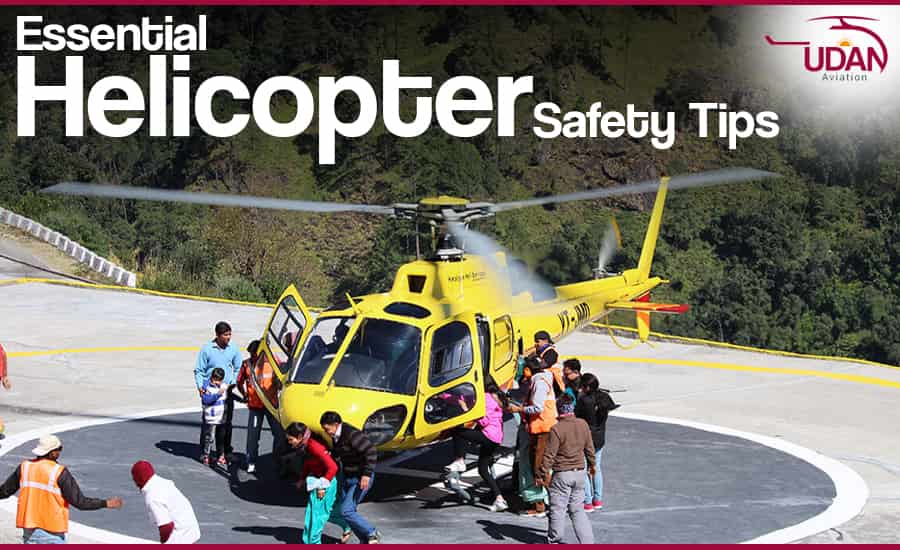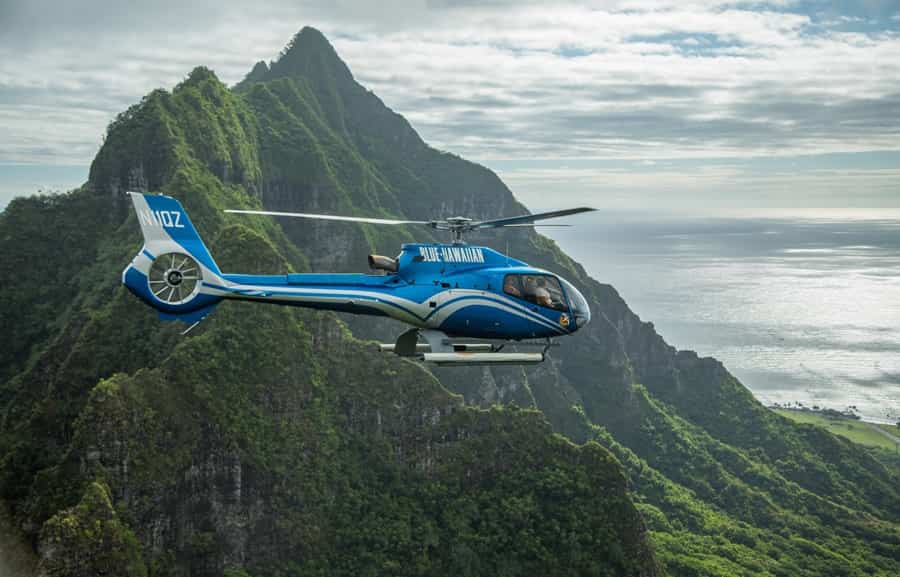Helicopter rides are undeniably one of the fastest and most convenient ways to visit a place. In the recent years, there has been a massive growth in
Helicopter rides are undeniably one of the fastest and most convenient ways to visit a place. In the recent years, there has been a massive growth in the tourism industry, as well as in alternative modes of transportation, helicopter being one of them. They’ve been around for 100 years now, and have only got safer with time. Today, helicopters are one of the safest ways to commute, while offering access to remote and difficult terrain as well, where aeroplanes cannot reach.
In India, the helicopter industry has skyrocketed in the year 2023, with not just VIPs but also the common public utilising its services, especially for trips to Kedarnath, Adi Kailash, Vaishno Devi, Kailash Mansarovar, Chardham Yatra etc. They are also a popular choice for emergencies, rescues and last minute trips in case of urgencies. That being said, it is also extremely crucial to observe safety measures while travelling by a helicopter. Although the flight itself is generally safe, there still is a need to be vigilant and follow safety instructions to avoid any mishap.
Here is a comprehensive guide of safety instructions for both pilots and passengers to ensure a safe and comfortable helicopter ride:

Helicopter Safety Tips for Pilots
As the person flying the helicopter, you’re responsible for not just your own safety but also of the passengers. Regardless of the amount of experience you have, it is important to never be complacent and always check for all safety protocols before the flight. As the pilot, here’s a list of checklist that will guarantee a safe flight:
1- Check if You are Ready to Fly
A great way to evaluate whether or not you are ready to operate the helicopter is the IMSAFE checklist. IMSAFE stands for:
- I- Illness
- M- Medication
- S- Stress
- A- Alcohol
- F- Fatigue
- E- Emotion
If you’re experiencing any of these in a way that does not meet the safety guidelines, you must not fly.
2- Pre-Flight Inspection
As a pilot, you must have a pre-departure checklist that you should tally with to avoid any safety related glitches later on. Before every flight, pilots must conduct a detailed pre-flight inspection of the helicopter. This includes checking the rotor system, fuel levels, hydraulic systems, and other critical components. They must also look for signs of wear and tear, do a walk-around inspection and ensure that all necessary documents are on board.
3- Stick to Weight Restrictions
Yet another crucial tip to remember is to avoid overloading the helicopter. Every helicopter has specific weight and balance limits. Pilots should ensure that the helicopter is loaded within these limits to maintain proper centre of gravity and stability, else it can be dangerous for the safety of everyone onboard.
4- Avoid Flying in Risky Conditions
Flying a helicopter safely requires weather conditions, air density and altitude to be within a certain limit, beyond which, it can turn out be risky. Therefore, if the weather conditions are not ideal, the pilot should abort the flight. Although helicopters are known to be able to fly low, it is not ideal to go below the suggested height limit, unless it is an emergency airlift, in which case, pilots have to take calculated risks.
5- Keep in Touch with Emergency Procedures
You never know when emergencies can arise when flying a helicopter, and even though you might be aware of emergency procedures as a trained pilot, it is also important to stay in touch with them. A pilot should practise emergency drills regularly in order to stay prepared for any unforeseen circumstance, like engine failure, system failure, emergency landing or fire.

Helicopter Safety Tips for Passengers
Observing safety guidelines is just as important for passengers as for pilots, since everyone onboard contributes to the overall safety of the flight. Therefore, as a flyer, you must prepare yourself to avoid any stress and also to combat any fears that you might be experiencing, especially if it is your first time in a helicopter.
1- Pay Attention to the Safety Briefing
Before boarding the helicopter, the staff will conduct a thorough safety briefing for the passengers, including emergency exits, the use of seat belts, and other instructions related to emergency procedures, if the need arises. You should take this seriously and pay attention to stay prepared.
2- Follow Crew’s Instructions at All Times
It’s never a good idea to expect the crew to accommodate your requests if they do not align with the safety guidelines that they have to follow. As passengers, it is ideal if you trust them completely and follow their instructions about each thing, like when and how to enter the helicopter, keeping seatbelt on at all times, only deboarding when asked to, etc.
3- Wear Appropriate Clothing and Travel Light
There is limited space in the helicopter cabin, so it is best to avoid clothes that are too flowy or loose like scarves or hats, which might even get caught in the wind or the rotor blades. Passengers should wear comfortable and appropriate clothing, also keeping in mind the weather conditions.
When it comes to how much baggage you carry, a small daypack per person should be good enough. There are weight restrictions for helicopters and it is important that you adhere to those limits.
4- Follow Approach and Exit Protocols
The crew will inform you about how you should board and get off the helicopter, so pay attention to that and follow it strictly. Overall, it is safe to enter and exit from the front of the helicopter in a crouched position, and never from the rear end, to avoid the rotors.
To conclude, we can all agree that travelling to a place by helicopter can bring both excitement and nervousness especially if it is your first time flying. It might be difficult to remember all safety protocols and to adhere to them fully, but with some preparation ahead of time and these tips in mind, you can ensure a safe and enjoyable helicopter ride to your favourite destinations.
COMMENTS